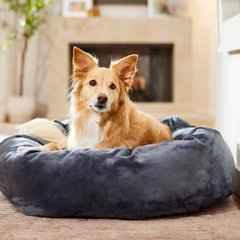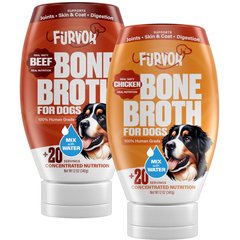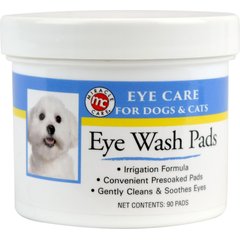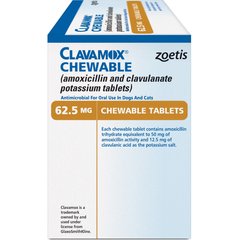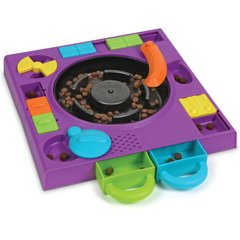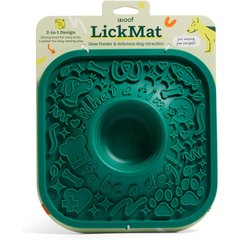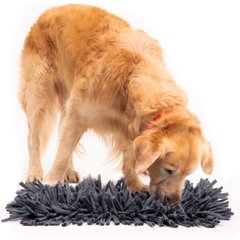Can Dogs Get COVID?
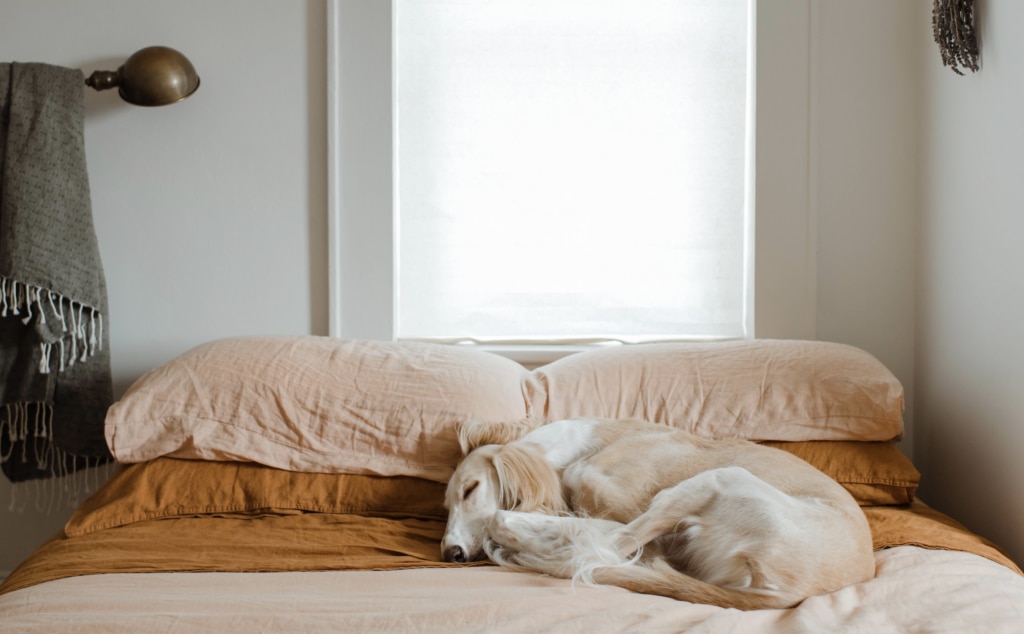
Photo by Chewy
If you’ve had the COVID-19 virus, you may have wondered, “Can dogs get COVID too?”
It’s not a stretch to ask yourself if they could even catch it from you. Here’s the latest info on COVID in dogs and how to keep them safe.
Key Takeaways
- Dogs can catch COVID-19, usually from pet parents who have the COVID-19 virus.
- The risk of a dog spreading COVID to people is extremely low.
- Most dogs have no symptoms or only very mild ones, like coughing or sneezing, and recover quickly with rest and hydration.
- See a vet immediately if your dog has difficulty breathing or a high fever, or refuses to eat or drink.
Can Dogs Catch COVID?
Yes, there are now many reports showing that dogs can get COVID, and they almost always catch it from infected people who they have close contact with.
That means that as a pet parent, you can definitely pass COVID on to your dog.
But what about in reverse?
It’s actually very rare for a pet parent to catch COVID from their dog. Many researchers and the US Centers for Disease Control and Prevention say the risk of animals spreading COVID-19 to people is low.
What Are the Symptoms of COVID in Dogs?
Thankfully, dogs who catch COVID rarely get very sick. Symptoms of COVID in dogs may include:
But the good news is that there are often no symptoms at all, meaning your best friend is unfazed by the virus.
Talk to your veterinarian if you’re worried that your dog may have COVID.
How Does a Dog Catch COVID?
Dogs catch the COVID-19 virus the same way humans do. Infected people can shed large numbers of viruses when they cough, sneeze, talk, or simply breathe.
A dog then inhales these virus particles, and they become infected too. The virus may also enter your dog’s body after it lands in their eyes, nose, or mouth.
Surfaces or objects that are contaminated with the virus can also be a source of infection, just as they can with humans.
If you’re sick with COVID, do your best to prevent passing the virus on to your pup:
- Don’t snuggle or share food
- Sleep in different rooms
- Don’t let your dog lick you
- Wear a mask if you have to be close to your dog (for example, if you don’t have another family member who can care for them)
How To Treat a Dog With COVID
Most dogs who catch COVID only need general supportive care that pet parents can provide at home, but it never hurts to spoil them a little bit too.
- Allow them to rest. Provide your dog with an extra-comfy bed, such as the Frisco Velvet Round Bolster Dog Bed. Limit exercise to short leash walks or trips to the backyard to take care of business.
Recommended Product
- Encourage them to eat and drink. A liquid dog food topper, such as Furvor Beef and Chicken Bone Broth Topper, is a good way to make meals extra-tasty and supplement water intake.
Recommended Product
- Keep their eyes and nose clean. Wipe away any buildup that accumulates by using a medicated wipe such as Miracle Care Sterile Eye Wash Pads.
Recommended Product
Because the risk of your dog spreading COVID to other animals or to people is so low, there is no need to quarantine them. They can continue to hang out with the family while they recuperate.
When To Head to the Vet
Even though COVID is usually mild in dogs, it’s still important to keep a close eye on their condition. Talk to your veterinarian if you notice any concerning signs like:
- Difficulty breathing
- Severe lethargy
- Unwillingness to eat or drink
- High fever
- Symptoms that are getting worse rather than better after the first few days of illness
Your vet can test your dog for COVID if necessary, but it’s more likely they’ll look for other conditions or complications that may require direct treatment. This may include chest X-rays, bloodwork, and other diagnostic tests.
Treatment depends on your dog’s overall condition. For example, if it looks like your dog has developed a secondary bacterial infection, your veterinarian will probably prescribe an antibiotic.
Recommended Product
Hospitalization may be necessary if your dog is very ill, but there is no approved form of treatment for COVID infections in dogs.
How Can I Help My Dog Feel More Comfortable?
Since dogs typically catch COVID from people who they share a home with, it’s very likely that you or someone else in your household is sick too.
In fact, your dog is probably feeling better than the rest of the family, and they may be getting bored and restless as everyone is trying to take it easy.
Here are a few ways to keep your dog entertained while you recuperate:
- Puzzle toys
- Lick mats
- Chews
- Snuffle mats
Recommended Products
With some rest, a little luck, and plenty of enrichment to keep your pup busy, hopefully everyone will be back to their old routines in no time.
FAQs About Dogs and COVID-19
What happens if a dog gets COVID?
Most dogs who get COVID have no symptoms or only very mild symptoms, like a little coughing or sneezing. More serious infections are possible though, so talk to your vet if you have concerns.
Can my dog get COVID from me?
Yes, most cases of COVID in dogs develop when they are in close contact with an infected person.
Can humans get COVID from dogs?
Not usually. The risk of a person getting COVID from a dog is very low.
How do you check a dog for COVID?
Veterinarians can test dogs for COVID, but this is usually not necessary.
Can puppies get COVID?
Yes, just like adult dogs, puppies can get COVID.
